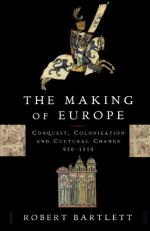|
This section contains 717 words (approx. 3 pages at 300 words per page) |

|
Religious evangelicals such as Thomas Gisborne (1758-1846) and Hannah More (1745-1833) in England believed that only a reinvigorated Christianity would help to stem the evils of the Industrial Revolution. For Gisborne one important means of creating a new sense of security was a reaffirmation of the maternal role that he believed was natural to wives and mothers. In his An Enquiry into the Duties of the Female Sex (1797) Gisborne emphasizes the proper management of the household, contributing to the new "cult of domesticity" that became popular at the turn of the nineteenth century:
Are you then the mistress of the family? Fulfill the charge for which you are responsible. Attempt not to transfer your proper occupation to a favorite maid, however tried may be her fidelity and her skill. To confide implicitly in servants, is the way to...
|
This section contains 717 words (approx. 3 pages at 300 words per page) |

|




